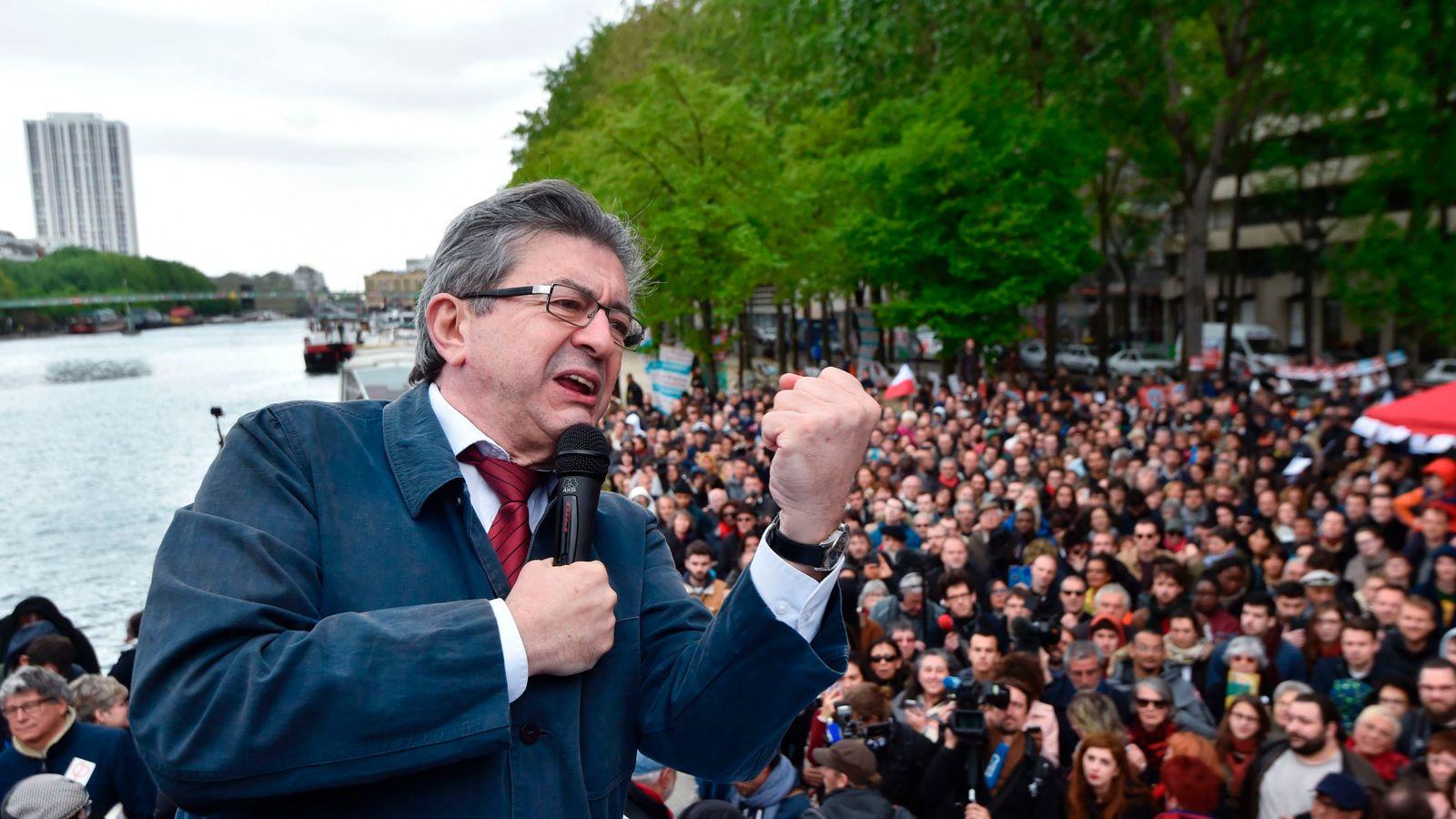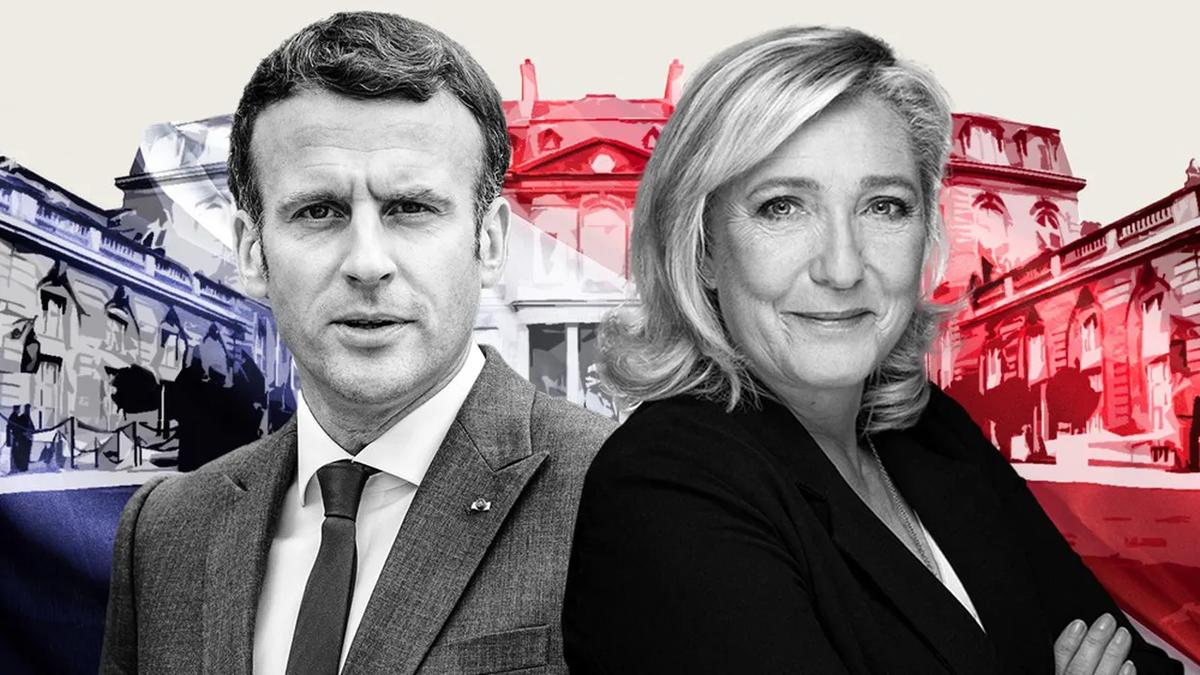From uncertainty to signs of civil war France at a crossroads
As the saying goes, sometimes to the right, sometimes to the left. This refers to Emmanuel Macron, who first lost to the right in the European Parliament elections, and then to the left in the "purely" domestic field—the National Assembly elections. Defeat after defeat, whether on the foreign or home front. Consequently, Macron has lost support from various sides, except for a certain percentage of individuals who voted for the centrist coalition he leads.
Though it's interesting. Thanks to Macron's supporters, the right-wing are invariably labelled as ultra-right or right-wing radicals. Meanwhile, members of the coalition of leftist forces that came to the finish line in the French parliamentary elections are labelled as radical-left or ultra-left. Yet the pro-Macron centre is simply referred to as centrists without any "radical" or "ultra" prefixes. Well, they can sort it out themselves. However, it is unclear, to say the least, how Macron, being merely the nominal leader of France, will continue to represent the country at NATO summits, G-7 meetings, and other international forums. Whose line does he intend to reflect at these serious geopolitical gatherings? The left's? The right's? Or the centrists', who practically lack a clear program?
Incidentally, the direct numerical results of the recently concluded National Assembly elections clearly indicate how deeply polarized French society is. Simply put, after joining forces with the centrists before the second round to garner votes from the right (proclaiming a "Republican front"), the coalition showed no desire to continue moving in unison with the centre immediately following the unexpected victory of the leftist New Popular Front.
And to be fair, the centrists were not particularly keen on forming a political symbiosis with the winners either. Specifically, the head of Macron's party, Renaissance, Stéphane Séjourné, immediately ruled out even a minor agreement with the pro-Mélenchon parties.

Hence, a clear vision of an impending political crisis in France emerges. No party has the ability to form a government, as none have secured enough votes. On the other hand, even if opposing political forces were to unite, any coalition, be it a tandem, trio, or quartet, could disband shortly after.
Against this backdrop, Jean-Luc Mélenchon, the leader of "La France Insoumise," the largest group in the winning coalition, declared that the current prime minister should step down, especially since "he governed without seeking the confidence of the National Assembly," and "the voters have issued a massive vote of no confidence in him." However, Mélenchon's call has so far gone unheard in the French political arena, as Macron rejected Prime Minister Gabriel Attal's resignation request, asking him to remain at the helm of the government "for a short time."
Commenting on the situation, Tiberio Graziani, the Chairman of Vision & Global Trends International Institute for Global Analyses, stated that "the lack of a parliamentary majority will not ensure the stability and effective functioning of the government," which will contribute to "an unclear political future for France," given the "governance issues" and significant manifestations of social discontent (due to ongoing economic troubles). Consequently, Paris's weakness on the pan-European stage is inevitable, leading to a further loss of the country's former authority on the international stage.
Moreover, a number of analysts have highlighted the victory marches held by supporters of the New Popular Front. Rather than focusing on the events themselves, they have drawn attention to the disturbances that occurred during these celebrations in Paris and several other cities across the country. Shops and cafes were vandalized, and police officers were pelted with stones and firecrackers. To disperse the unruly crowd, law enforcement used tear gas. Notably, some of the protesters were seen carrying Palestinian flags.
Overall, the left was the only political force in France to use the wave of demonstrations in their election campaign. However, this was not aimed at drawing public attention to their platform. The purpose of the rallies was an "anti-right" stance, with demonstrators chanting slogans such as: "Fascism is gangrene, we either destroy it or it will destroy us." The most significant aspect of these events, as noted by several media outlets, was that "representatives of the left-radical black bloc movement" had infiltrated the protesters. These individuals were responsible for smashing shop and cafe windows and setting garbage bins on fire along the way.

According to some observers, this same faction created chaos during the "victory demonstration" after the second round. The question remains: why was this done, and who incited these unlawful actions, thereby undermining the left? Some experts speculate that it could be a move to set the stage for subsequently blaming the situation on Islamists. In this context, quotes from certain media outlets are cited, stating that after the first round, "thousands of Islamists and leftists united against the far-right," and at this gathering, "not a single French tricolour" was seen. This sharply contrasted with right-wing events, where tens of thousands of demonstrators waved national flags and sang "La Marseillaise."
It is quite clear what this implies, especially in the context of Islamophobic sentiments in France and Europe as a whole. For instance, in a June report by Germany's Federal Office for the Protection of the Constitution, "Islamists and right-wing radicals" were identified as the main threats to the country's internal security.
Be that as it may, the above-mentioned facts confirm the thesis of a serious polarization of French society. Therefore, some observers subtly suggest the possibility of civil war manifestations at a certain stage of ideological battles.
Regarding the international backdrop, we conclude this material with an interesting comment by Polish Prime Minister Donald Tusk on the situation in France: “In Paris enthusiasm, in Moscow disappointment, in Kyiv relief. Enough to be happy in Warsaw.”
By Teymur Atayev
The views and opinions expressed by guest columnists in their op-eds may differ from and do not necessarily reflect the views of the editorial staff.








